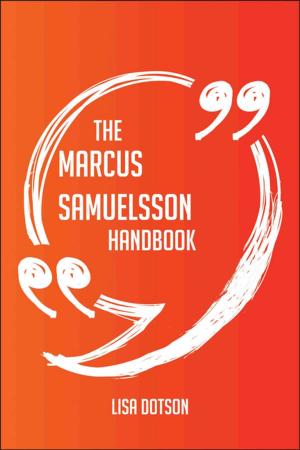The Freedom of Science - The Original Classic Edition
Nonfiction, Reference & Language, Reference, Fiction & Literature| Author: | Joseph Donat | ISBN: | 9781486448463 |
| Publisher: | Emereo Publishing | Publication: | March 18, 2013 |
| Imprint: | Emereo Publishing | Language: | English |
| Author: | Joseph Donat |
| ISBN: | 9781486448463 |
| Publisher: | Emereo Publishing |
| Publication: | March 18, 2013 |
| Imprint: | Emereo Publishing |
| Language: | English |
Finally available, a high quality book of the original classic edition of The Freedom of Science. It was previously published by other bona fide publishers, and is now, after many years, back in print.
This is a new and freshly published edition of this culturally important work by Joseph Donat, which is now, at last, again available to you.
Get the PDF and EPUB NOW as well. Included in your purchase you have The Freedom of Science in EPUB AND PDF format to read on any tablet, eReader, desktop, laptop or smartphone simultaneous - Get it NOW.
Enjoy this classic work today. These selected paragraphs distill the contents and give you a quick look inside The Freedom of Science:
Look inside the book:
It should be free, not from the internal bondage of truth, but from the restraint by external authority, the restraint which would hinder it, in an improper way, from approaching those questions, and using those methods, that lead to the discovery of truth, and from acknowledging the results it has found to be true; or which would unlawfully keep it from making known, for the benefit of others, the results of its investigation. ...In civil life, of course, it is a principle that man must submit to external, legal restraint in many things that do not directly concern his own person, but only so far as is necessary in order that others, too, may enjoy the same freedom; but also here every citizen must be able to share in the legislation, according to the rules of constitutional or republican government. ...The International Congress of Free-thinkers, held at Rome in June, 1904, thus defines free-thought: “Since free-thought cannot concede to any authority whatever the right to oppose human reason, or even to supersede it, it demands that its advocates reject directly not only any compulsory belief, but also every authority that tries to enforce its dogmas, even though such an authority be based on revelation, or though it command obedience to dogmas or a-priori principles of philosophy, or to the decisions of public authority or the vote of a majority.”—We shall have frequent occasion to speak of this freedom in these pages.
Finally available, a high quality book of the original classic edition of The Freedom of Science. It was previously published by other bona fide publishers, and is now, after many years, back in print.
This is a new and freshly published edition of this culturally important work by Joseph Donat, which is now, at last, again available to you.
Get the PDF and EPUB NOW as well. Included in your purchase you have The Freedom of Science in EPUB AND PDF format to read on any tablet, eReader, desktop, laptop or smartphone simultaneous - Get it NOW.
Enjoy this classic work today. These selected paragraphs distill the contents and give you a quick look inside The Freedom of Science:
Look inside the book:
It should be free, not from the internal bondage of truth, but from the restraint by external authority, the restraint which would hinder it, in an improper way, from approaching those questions, and using those methods, that lead to the discovery of truth, and from acknowledging the results it has found to be true; or which would unlawfully keep it from making known, for the benefit of others, the results of its investigation. ...In civil life, of course, it is a principle that man must submit to external, legal restraint in many things that do not directly concern his own person, but only so far as is necessary in order that others, too, may enjoy the same freedom; but also here every citizen must be able to share in the legislation, according to the rules of constitutional or republican government. ...The International Congress of Free-thinkers, held at Rome in June, 1904, thus defines free-thought: “Since free-thought cannot concede to any authority whatever the right to oppose human reason, or even to supersede it, it demands that its advocates reject directly not only any compulsory belief, but also every authority that tries to enforce its dogmas, even though such an authority be based on revelation, or though it command obedience to dogmas or a-priori principles of philosophy, or to the decisions of public authority or the vote of a majority.”—We shall have frequent occasion to speak of this freedom in these pages.













![Cover of the book Uncle Walt [Walt Mason] - The Poet Philosopher - The Original Classic Edition by Joseph Donat](https://www.kuoky.com/images/2013/march/300x300/9781486496860-4Azq_300x.jpg)

